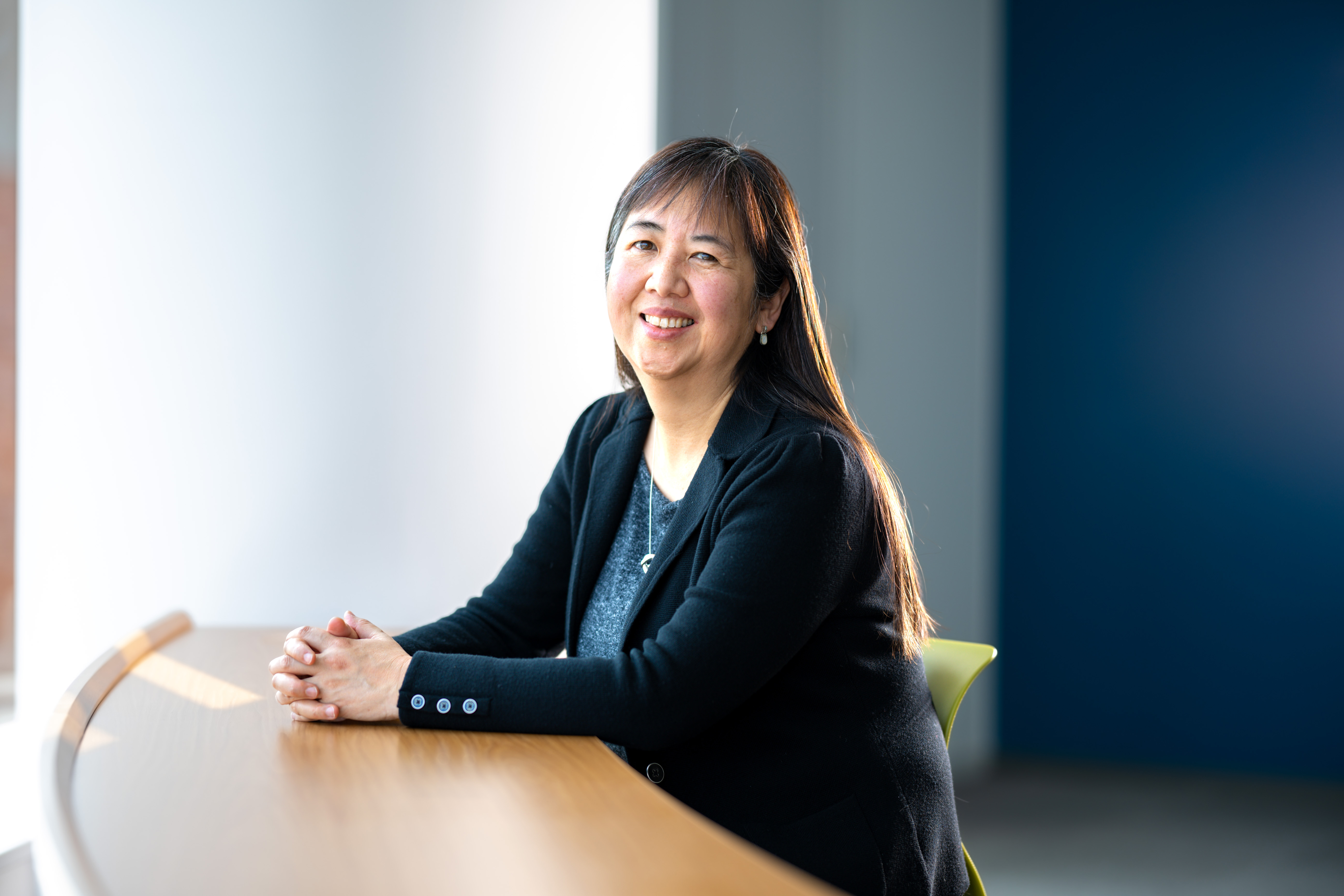
Professor Kaori Idemaru, Department of East Asian Languages and Literatures, University of Oregon
"Stepping out to look within: Rediscovering yourself in unfamiliar territory"
After graduating from Osaka University of Foreign Studies, Dr. Kaori Idemaru completed her MA TESOL at the University of North Iowa. Following a stint as an instructor of English and Japanese languages in Kyoto after coming back from the US, she then entered the University of Oregon to pursue her PhD in Japanese linguistics and proceeded to work at Carnegie Mellon University as a postdoctoral fellow. She became a faculty member at the University of Oregon in 2008.
The fruits of her studies and experiences at Osaka University of Foreign Studies

While studying at OUFS, she did not have a concrete vision of her future. However, during her later years at the university, she found studying more interesting and decided to go to graduate school to study English language education as she wanted to instill a love of English in the next generation of students.
“What I learned and experienced at OUFS has helped me tremendously in my current position,” says Dr. Idemaru. “I have been able to pursue my career because of the outstanding education I received and the lifelong friends I made during my time at the university,” she continues. OUFS appreciated and fostered diverse ways of thinking and backgrounds. Students studying there were independent-minded and high-achieving, and Dr. Idemaru was inspired by her classmates who were excelling in studies and going abroad to seek challenges. She herself went to the UK for three months during her second year at the university, gaining confidence as she navigated an unfamiliar culture.
Never a dull moment - working at a research university
Dr. Idemaru works at a research university, so she is expected to primarily concentrate on research, with additional teaching and university administration responsibilities.
Her specialty is phonetics. She teaches phonetics related to Japanese, Chinese, and Korean in the Department of East Asian Languages and Literatures. Phonetics is the study of a language’s sounds, their characteristics and how they are produced, and how they are processed by listeners. Accents are a good example. When Americans, Chinese, and Koreans are learning Japanese, they often have an accent when they speak. Dr. Idemaru studies what Japanese people perceive as an “accent” when they hear it. She also studies the characteristics of listeners that shape the perception of accents. Dr. Idemaru mentions, “Listeners may hold certain prejudices toward accented speakers. I want to study the phenomena of foreign accents in order to raise awareness about potential biases related to them and ultimately improve inter-cultural understanding.”
Striving to spread acceptance and understanding through her work
Dr. Idemaru hopes to provide the younger generation with a broader, more global perspective. As a university faculty member, one of her goals is to encourage student exchange between partner universities.
As for what she hopes to accomplish through her research, she believes that research is about gaining new knowledge and disseminating it broadly. She elaborates: “I would like to work toward mitigating discrimination based on accents and advocate for open-mindedness toward accented language.”
In the future, Dr. Idemaru wishes to investigate whether non-native Japanese speakers have had negative experiences due to their language ability. She also hopes to investigate whether accented and imperfect language has negative impacts on non-native speakers in professional or public contexts such as work places, government offices, or judicial courts.
Dr. Idemaru says, “Countries like the UK and the US have large immigrant communities and have long faced such problems. Japan is also experiencing a rise in the number of immigrants, and I believe that we must accept various forms of Japanese, including those that are accented.”

A Message from Dr. Idemaru to OU Students
Dr. Idemaru had an encouraging message for students: “I hope that students will take as many opportunities as possible to go abroad and see the larger world while at university. Leave behind familiar ground and put yourself in a completely new environment, work with uncertainty, see Japan from the outside, and rediscover yourself. Taking on new challenges will give you renewed confidence. It will give you a strong foundation when you leave the university and enter the larger society.”
Text: Saori Obayashi/Edit: Christopher Bubb